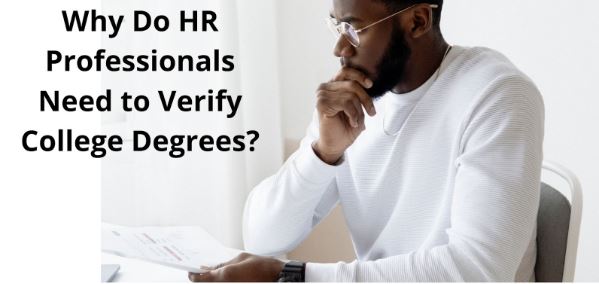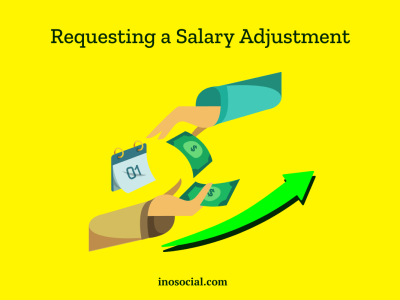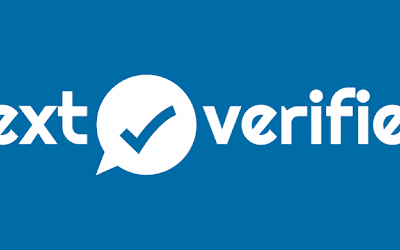Human resources professionals are tasked with selecting the best and the brightest to join a company’s ranks. As such, we must ensure that those we let in the door can perform the work required and have the suitable mental capacity to work in our company culture. Getting it right the first time around is crucial. Verifying college degrees is one of the essential parts of ensuring we choose the best candidate.
Most applicants for jobs have degrees from learning institutions all over the world. Several also come with professionally edited cover letters that show off their skills and experience. The trend of virtually edited applications is not new, as more graduates and students look for “edit my paper” online solutions. Yet, despite all of this, it’s vital to remember that not all that glitters is gold. Some applicants may not be what they seem at first glance.

Why Is Verification Necessary?
When an HR professional looks at a shortlist of candidates, college degrees and where they’re from stand out. However, just getting a degree at a prestigious institution doesn’t tell us anything about the candidate apart from their ability to learn. During the education verification process, we can determine the nature of the degree and what skill level they qualified at.
Verification is also crucial in determining whether an applicant has a degree from a proper institution or if they just bought one from a “diploma mill.” According to GCF Global, diploma mills are institutions that sell degrees without concern for the student’s ability to complete work or learn anything about the topic.
If you’re faced with a candidate that seems to have a degree issued by a diploma mill, you may need to run a background check to verify other particulars of their application. However, it might be best to simply remove the candidate from the shortlist once this dishonesty is detected.
An applicant that submits a diploma from one of these institutions shows a dishonest streak that would probably endanger the company’s operations over time. It may be best to simply avoid dealing with this candidate altogether. A diploma mill in the candidate’s education section is a red flag for any HR professional.
How To Spot Diploma Mills?
According to Angelina Grin, an expert at Studybay, many candidates who are used to editing papers apps online feel they can get away with diploma mill degrees because those organizations are challenging to tell apart from traditional educational institutions. Sometimes, these diploma mills use a naming structure similar to a real university. HR professionals can leverage several background screening services to help them figure out if a university is real or not.
Many universities utilize a degree accreditation system linked to an international accreditation body. In other cases, HR professionals can access the National Student Clearinghouse to verify a candidate’s degree particulars.
How Do Employers Verify Education?
Many HR professionals prefer a more hands-on approach to proof of degree for a job. Occasionally, an employer asking for a copy of a degree to keep on file is the accepted way to collect this information. Hiring managers may prefer to call the office presented on the degree to verify the institution and its degree program. Diploma mills have offices set up expressly for this purpose, so calling to verify particulars defeats the purpose and legitimizes a degree that doesn’t deserve the acknowledgment.
Other companies require a transcript to be forwarded from the institution to the hiring manager directly to ensure there’s no tampering with the degree level or grades. Even here, diploma mills can do the same as a real university, with the hiring managers none the wiser about the situation.
The first step in verification comes from collecting the relevant information from the applicant. This information includes:
- Their full name and address, including their maiden name if they were married after getting the degree
- The name and address of the institution they got their degree from
- What dates they attended the institution
- The educational field and title of the degree
- An authorization letter, signed and dated, from the applicant
This information is critical in helping an HR professional verify a degree.
Student clearinghouses are among the best options for verifying a degree’s veracity. These clearinghouses collect payment and loan information about students, alongside their degree enrollment at academic institutions. Querying a clearinghouse usually has a small fee attached. HR professionals should only attempt to do this when they have cut down their candidate list to a relatively short amount to reduce costs to the company.
Clearinghouses are also helpful because they can integrate with many application tracking backends. If that’s the case, you could keep all your queries and responses in a single place for later reference.
As mentioned before, HR professionals could opt to call the institutions directly. This DIY method is labor-intensive and doesn’t always generate the best results. DIY verification saves the business money, but the hassle and stress it may cause the HR professional isn’t worth it.
Moreover, this verification method is more time-intensive and impractical for even a shortlist of candidates. Information collected through DIY verification may also be incorrect, depending on the source of that information. HR professionals may also fall prey to diploma mill administrative centers when opting for this verification route.
By the way this guide would surely be interesting to you: “low-stress jobs that pay well without a degree“
Sidestepping Discrimination Claims
As an HR professional, you might be inclined to “mix and match” your verification procedures for candidates. You may outsource some of your verification to a clearinghouse while keeping a few in-house. Others you may decide not to verify at all. This approach could leave the business open to a discrimination lawsuit. If you start doing verification checks through a third party, then all shortlisted candidates should be processed through the same verification system.
Education background checks are usually performed before a candidate enters the workforce. Employees who are already within the company’s roster may be grandfathered into the system without needing an educational background check. Again, information might be challenging to find and may open the department up to discrimination allegations if done improperly.
How Long Does It Take To Verify a Degree?
It doesn’t take too much time to perform a background check for a college degree. A general rule of thumb is that it takes up to three business days for a clearinghouse to respond to a query. If the HR department is conducting the verification themselves, there might be a much longer time before they have results in hand.
Colleges and universities have a much faster turnaround time than high schools or GED-granting institutions. It’s also important to remember that the time of your request to a school may impact how fast they get back to you. Staff is at a minimum during school holidays, and the school will take longer to get back to you. They may also be running at reduced hours during this period.
What Verifying a Degree Tells Us About a Candidate
With all the time and effort to verify a degree, the result must tell us something about the candidate. What we learn as professionals is whether the candidate’s degree comes from a reputable institution and whether they have the knowledge level necessary to perform the job.
If the institution granting the degree is not accredited or turns out to be a diploma mill, we also learn that the candidate is unscrupulous and dishonest. In either case, it helps us to advance the candidate to the next stage of interviews or remove them from the pool of shortlisted applicants. Verification is a valuable tool because it allows us to further pare down applicants to those we prefer in the position we’re trying to fill.











